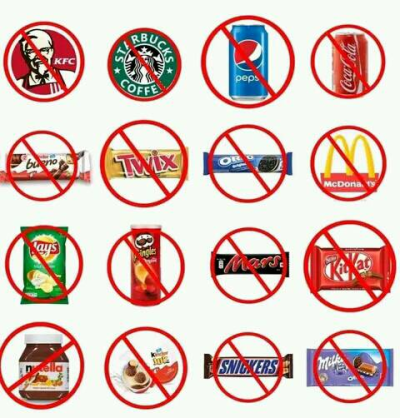Western Brands Boycott Calls Intensify After US Jets Bomb Yemen

All Global Research articles can be read in 51 languages by activating the Translate Website button below the author’s name (only available in desktop version).
To receive Global Research’s Daily Newsletter (selected articles), click here.
Click the share button above to email/forward this article to your friends and colleagues. Follow us on Instagram and Twitter and subscribe to our Telegram Channel. Feel free to repost and share widely Global Research articles.
New Year Donation Drive: Global Research Is Committed to the “Unspoken Truth”
***
Social media users are pressing ahead for continued boycotts of Western brands as the US and its allies pound Yemen with air strikes and missiles to neutralize Iran-backed Houthi rebels.
“Boycott these brands that support the invasion of Yemen,” X user Naila Ayad said in a post viewed more than 1.6 million times.
Boycott these brands that support the invasion of Yemen. pic.twitter.com/rYNpCmldV3
— Naila Ayad🇵🇸 (@Naila_Ayad) January 12, 2024
And this.
Calls for boycott of top German brands are spreading on social media after Germany announced that it would join Israel at the ICJ as a third party https://t.co/BpTjUb40Bn
— Dima Khatib (@Dima_Khatib) January 13, 2024
🚨🇾🇪OFFICIAL HOUTHI STATEMENT: BOYCOTT AMERICAN AND ISRAEL PRODUCTS
Abdul Malik: "The West talks about freedoms and rights, but their position on Gaza is like a scandal
The Palestinian people have the right to confront injustice and liberate their homeland
We must take action… https://t.co/Squ2ajCVHU pic.twitter.com/r3hjaw5Gfq
— Mario Nawfal (@MarioNawfal) January 11, 2024
One X user pointed out,
“None of these brands have anything to with Yemen and the US didn’t invade Yemen, also why is their idea of a boycott just targeting snacks.”
“Actually, boycotting these brands will improve your health, too,” another X user said.
These calls come as boycotts across the Middle East have battered Western brands following the deadly Hamas attack in southern Israel on October 7.
McDonald’s CEO Chris Kempczinski wrote a LinkedIn post earlier this month that explained the Middle East boycotts have had a “meaningful business impact.” He said the boycotts were “due to the war and associated misinformation.”
“I also recognize that several markets in the Middle East and some outside the region are experiencing a meaningful business impact due to the war and associated misinformation that is affecting brands like McDonald’s. This is disheartening and ill-founded. In every country where we operate, including in Muslim countries, McDonald’s is proudly represented by local owner operators who work tirelessly to serve and support their communities while employing thousands of their fellow citizens. That local community connection is the genius of the McDonald’s System.”
Last week, Papa John’s International Inc. blamed “lower-than-anticipated net unit openings” on “unanticipated international restaurant closures in the fourth quarter including 10 UK franchised restaurants; 12 international units that were re-classified as closed locations in the fourth quarter through a review of temporary restaurant closures; restaurant openings moved into 2024; and restaurant opening delays due to the ongoing conflict in the Middle East.”
It’s not just McDonald’s. Reuters said other Western brands, such as Starbucks and KFC, have been boycotted.
It remains to be seen if boycotts will intensify since the US bombing campaign in Yemen began on Wednesday.
*
Note to readers: Please click the share button above. Follow us on Instagram and Twitter and subscribe to our Telegram Channel. Feel free to repost and share widely Global Research articles.
Featured image source

